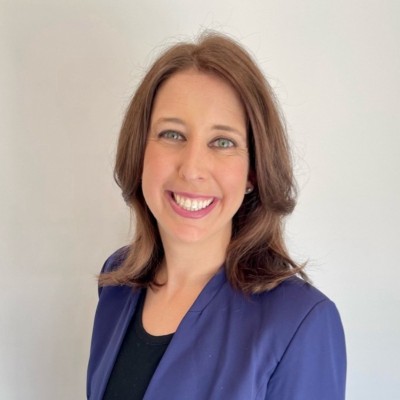Episode 19: Zeb Couch on Aligning Sales Enablement Activities with the Buyer’s Journey
2.8K Views | 16 Min Read
Shawnna Sumaoang: Hi, and welcome to the Sales Enablement PRO podcast. I am Shawnna Sumaoang. Sales enablement is a constantly evolving space, and we’re here to help professionals stay up-to-date on the latest trends and best practices so they can be more effective in their jobs.
Our guest today is Zeb Couch. He oversees strategic enterprise accounts at LeadGenius. Zeb, could you take a minute and introduce yourself and your role?
Zeb Couch: Sure. So, at LeadGenius, I’m heading up the strategic accounts team. Our focus over here is to help people figure out what data they need, what personalized data they need to run their sales and their marketing teams, and then once we are able to get them the data that they need, we help them figure out the best way to use it.
SS: Excellent. So, being on the strategic account side, what are some of the ways that sales enablement processes have impacted your efficiency and productivity at your organization?
ZC: I don’t know if you guys have found this but whenever I talk about sales enablement with different people, sometimes it means different things within different orgs. I don’t know if you guys have found that, but people define it differently sometimes. I think over here, we consider sales enablement really being the process of giving salespeople the best data and the best content that they need to really tell the right story to the right person at the right time.
I think it’s important to bring those pieces together in a way that obviously supports them but really helps increase efficiency and productivity. All of that is ultimately measured by revenue generation. So, we think of sales enablement as again, bringing together data, which really at the end of the day is the right person and information at the right time to reach that person, and the content is really all about that right story. And we’ve really worked to put a process in place so that the way that we deliver the data and content is delivered in a way that’s efficient and productive for the team.
SS: Excellent. So, tell me a little bit about what sales enablement looks at your organization. How’s it currently structured at LeadGenius?
ZC: It kind of straddles, for us, a sales ops and a marketing ops role. I think the data we have really coming from our sales ops folks, so our director of sales ops, Adam Louie, and the folks on his team are using our own tools to go out and find the information that the sales folks need.
Then on the marketing side, they’re really helping us put together the right content to reach those people with. And also sort of helping us to make sense of the different intense signals and the different data points that we’re gathering around timing to make sure that we’re delivering that content to the right person when they’re at the right point in the buying cycle that’s kind of matched to their role and also their company’s industry. So, it straddles both sales ops and marketing ops for us.
SS: Yeah. No, that’s perfect. Actually, if you don’t mind me deviating a little bit from the interview questions–
ZC: No, not at all. Let’s do that, for sure.
SS: I love what you’ve been talking about pairing data and content to align with the buyer’s journey. Can you explain to me, especially with the strategic accounts that you oversee, kind of how you guys think about approaching those accounts holistically and using the data that you have to make sure that you’re surfacing the content that’s most relevant to those prospective buyers when you’re engaging with them?
ZC: Yeah, so from a strategy perspective, we kind of have three layers to how we’re going after accounts, right? And those three layers relate back to what I think has become the buzzword of the last two years, which is ABM. So we’ve structured our account approach for both account-based marketing and account-based sales in three tiers.
So, we have this programmatic tier where we’re sort of tapping into thousands of potential target accounts. That’s sort of our third base tier. The second tier is really hundreds of accounts that we take a one-to-few type of approach. Things are a little bit more personalized, the efforts that we put in place to identify those accounts have been a little bit more nuanced and targeted.
And then our top tier is more of this one-to-one approach, where we’re focusing on maybe tens of accounts that we know we really want to get into. And each tier has its own tracks that are based on industry, depending on the accounts that are in those tiers, and then also roles. So, the people that we want to hit at those accounts, based by tier and also by industry.
As far as the data goes, we have the good fortune of being a data company at our core, so we’re able to use a lot of different sources to help us filter accounts into those three tiers, filter the right people into those accounts, and then also use some sales automation tools to perform the outreach.
As far as the content goes, there are two areas where we’ve really been focusing on recently. So, the content pieces – our VP of demand has been doing an incredible job in mapping user stories and account content collateral to industries. That is something that we haven’t really done in a meaningful way before. That’s the first piece.
The second piece where we start to get more sophisticated is being able to have content that is better mapped to not only industry but where certain accounts in the verticals that I mentioned are aligned around their buying behaviors. So, our goal is to develop content that is at the top of the funnel for those three tiers: some awareness content and high-level content around industry.
Then as people start to show signals, whether it’s from an intent perspective across those tiered accounts or searching for solutions or competitors that are related to us, surfacing content to them that’s more related to that piece. As they start to engage with us, having another layer of content that maybe dives a little bit deeper into more specific solutions as we start to unpack what that prospect’s sales or marketing teams might need and what they’re looking for.
Then I think one other area, just to cap this off as far as content goes, is when someone becomes a customer of ours. That opens up a whole new opportunity to educate them and stay top-of-mind and continue to deliver value. I think at a lot of organizations, so much time and energy is spent on developing content to convert people, and maybe less time and energy is spent on developing content to keep people. They should use those folks and upsell/cross-sell opportunities and use that content in cross-sell/upsell opportunities and also opportunities just to educate people on the solution that you provided in new ways where they could use a tool. So, that’s sort of a cross of all of our account tiers, how we organize those accounts, how we’re trying to map content to those accounts and just kind of how everything works today and also some aspirational stuff.
SS: Absolutely. And I love that you guys take an account-based approach, we do here as well. I think that an account-based approach for go-to-market really does dovetail very nicely into sales enablement because it is that high-touch, it is very personalized outreach, and I think sales enablement pairs very nicely. That’s exactly what sales enablement is intended to do. It’s intended to help the sellers have a more personalized engagement with their buyers and really accelerate the velocity of the deal by knowing what the buyer’s most interested in and when and how to educate them to move them along the funnel. So, that sounds amazing and right up our alley. We definitely see ABM and sales enablement working hand-in-hand really well across a lot of organizations.
ZC: Yeah, I think you nailed it, just as far as this word “personalization”. If we just look at the consumer marketplace, your business, our business is all B2B focused, but we kind of think of it as human-to-human, right? I mean that’s sort of cliché now but the idea is that we’re selling to people. And if we look at what’s happening on the consumer side of things, Amazon, Netflix, even Uber and Lyft, everything is personalized to who I am, what I care about, what I’m interested in watching, the things I’ve purchased, my frequent destinations. Lyft and Uber will surface those as soon as I open the app. It’s all around personalizing things to me.
I think in the B2B world, again, because we’re human-to-human, are starting to demand that level of personalization when it comes to how sales teams are performing outreach to them. How sales teams and marketing teams are coming together to deliver content that’s relevant to me as a buyer. I do a ton of research before I reach out to anyone. So, the idea here is how do we take those signals and also just maybe even add in some predictive ability to try to surface information that we know is going to be immediately curated to you.
I think people demand that today as buyers, whether we’re in our consumer hat or we’re wearing our business hat, we need to personalize experiences to people. I think in a lot of ways that’s been a moving target for people, so we’re trying not only in our own business with the solutions we deliver but also as we coach people and work with people, just developing this whole methodology around personalization being at the core of marketing and sales enablement together. And it’s tough, but I think like you guys, where we’re working through ways to make those experiences more personalized every day.
SS: I love that, and I think you’re absolutely right. I think as buyers, even in the B2B world, you’re spot on that our B2C experience is now blending into our B2B buying expectations. And so we’re expecting sales reps to be more educated, know what it is that we’re interested in, know where we are in our buyer’s journey and how to get us to the next step as quickly and as easily as possible. And I think that there’s definitely a low tolerance for sales reps that are trying to send out those canned messages that don’t necessarily resonate. So, I think enablement is playing a huge role in really trying to uplevel the game of sales reps within organizations that have to address these new buyers, basically.
ZC: Totally, yeah. We couldn’t agree more, Shawnna, for sure.
SS: That’s very cool. I want to deviate away from our current talk track, and I want to talk to you a little bit, just given your sales background and that you’ve been doing sales now for some time across several organizations. I would love to talk to you just a little bit about your perspective on sales enablement’s approach to sales readiness, if you will. So, as a rep or as a sales leader, I’m sure that you’ve engaged with enablement across several fronts but one of the ones that’s probably the most high-touch and high-visibility is probably the readiness component. As you go into a new organization ensuring that sales onboarding is working and effective all the way through that kind of continuous training and frontline manager coaching, I would love to understand from you just some of the maybe best practices or experiences that you’ve had on that front, just in the shoes of a sales leader.
ZC: Sure. This is a loaded question, it’s a good one. Totally transparently, I think a lot of the organizations I’ve worked in could benefit from better processes around hiring and continued education. I feel like it’s always been similar to how we’ve talked about maybe a lack of total focus around how we expand existing customers.
I feel like there’s been a lack of total focus at least in my experience around continuing to provide training to folks once they’ve been onboarded. I feel like a lot of focus is on finding whom I consider to be the right candidates and kind of ramping them up, and we think of a lot of times ramping them up means how quickly can they sell their first deal. Then once that’s done, oftentimes structure sort of falls away as far as continued education goes. So, I feel like a lot of the orgs I’ve worked within could have benefitted from better processes around that.
I think in my opinion if I were to be able to have more of a hand overall, is creating material that helps different use cases and different challenges that we’ve solved in the past in some meaningful way to keep all reps up to speed with new use cases and new things that are being solved. We use Slack for something like that, we have a dedicated channel for that.
But I think overall, I think better coaching needs to go into listening. And maybe this is more of an intangible than you’re looking for, but I feel like sales reps and especially today in this agent buyer 2.0 where people just do tons of research before they reach out to an organization. Sales reps just always need to work on becoming better listeners. And then that goes hand-in-hand with asking better questions and understanding that often what is said is not what is heard. Then, I think just coaching and best practices around how do I become a better listener, how do I identify different things that someone might be saying, how do I develop better strategies as a person to work to solve different solutions?
That is where I think great coaching is just so important to help reps have better bedside manner with how they engage with people. That is something that I think the great sales folks that I’ve worked with are very, very good at.
It’s a rare person that can translate and teach better listening and better questioning skills to people but better listening, better questioning, those are two things that I would love to develop better process around in almost every organization that I’ve been a part of. If there’s some way to codify that, I would eat it up. I don’t know if that totally answers your question, Shawnna, but those are just some of the things that came to mind for me around those three areas that you mentioned.
SS: Thanks for listening. For more insights, tips, and expertise from sales enablement leaders, visit salesenablement.pro. If there’s something you’d like to share or a topic you want to know more about, let us know, we’d love to hear from you.














